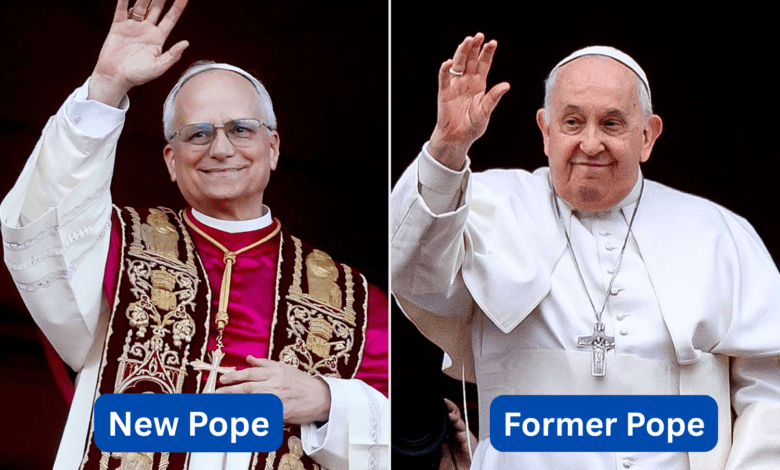Who Is Pope Leo XIV? Meet the First American Pope in History

In a historic move that sent shockwaves through the Catholic world, Cardinal Jean-Louis Taborda was elected as the 268th pontiff of the Roman Catholic Church, taking the papal name Pope Leo XIV. But this isn’t just another name in the long line of religious leaders. He is the first American—specifically, Peruvian-American—to become pope. This monumental moment marks a new chapter for the Church, as tradition meets transformation in a time of global change.
So who exactly is Pope Leo XIV? What makes his election so significant? And what might his leadership mean for Catholics around the world? Let’s explore the life, beliefs, and early days of the world’s new spiritual leader.
From Chicago to the Vatican: His Humble Beginnings
Pope Leo XIV was born Jean-Louis Taborda in Chicago, Illinois, to a Peruvian mother and an American father. Growing up in a culturally rich, bilingual household, Jean-Louis developed a strong sense of identity rooted in both Latin American and North American traditions. His upbringing in a modest, working-class neighborhood shaped his views on poverty, justice, and inclusion.
He was drawn to the Church at a young age, often described by childhood friends as “wise beyond his years” and “in love with the Gospel.” After completing seminary training and earning degrees in theology and philosophy, he rose steadily through Church ranks, gaining recognition for his pastoral care, sharp intellect, and unwavering advocacy for the marginalized.
A New Kind of Leader: His Core Values and Vision
Even before his election, Taborda was seen as a progressive voice within the Church. He frequently called for more inclusion of women in leadership roles, broader acceptance of LGBTQ+ Catholics, and greater attention to climate change and economic inequality. His papacy is already being described as one that could reshape Church traditions without severing them.
In his first public address as Pope Leo XIV, he stated:
“The Church must be a place of refuge and renewal for all people—especially the wounded, the unheard, and the unseen. Christ did not come for the perfect, but for the people.”
His tone was pastoral but direct—offering a message that blends modern empathy with spiritual depth.
A Global Perspective Rooted in Latin America
Though born in the U.S., Pope Leo XIV is deeply connected to his Peruvian roots. He has spoken extensively about liberation theology—a movement that emphasizes social justice and the Church’s role in defending the oppressed—drawing influence from Latin American theologians and revolutionaries of faith.
This global perspective, combined with an American upbringing, makes him a bridge between continents, a spiritual diplomat who understands the challenges of both the Global South and the Western world.
Why His Election Matters
The significance of his papacy goes beyond the borders of the United States or Peru. Here’s why his election is groundbreaking:
- First American Pope in History: Until now, no American cardinal had ever been elected pope. His rise signals a shift in the Vatican’s openness to voices outside of Europe.
- Symbol of Change: With declining Church attendance and increasing calls for reform, Pope Leo XIV represents a new kind of leadership—not just ceremonial, but relatable.
- Diverse Representation: As a biracial, bilingual pope, he embodies the growing diversity of the Catholic Church’s global population.
Controversies and Challenges Ahead
While many hail him as a refreshing presence, not all within the Church are celebrating. Traditionalists have voiced concern over his progressive stances, warning against diluting long-held doctrines. Critics have pointed to his openness toward LGBTQ+ Catholics and his calls for a “more compassionate” approach to reproductive issues as problematic.
Still, Pope Leo XIV remains undeterred.
In one interview, he said:
“Truth does not change, but our understanding of it must deepen with each generation.”
It’s clear that he intends to balance reverence for tradition with relevance to modern life—a daunting, but perhaps necessary task for the survival of the Church.
What’s Next for the Church Under Pope Leo XIV?
In the short time since his election, Pope Leo XIV has already begun to make headlines:
- He’s called for a global summit on climate change and faith, urging religious communities to take action.
- He’s established a commission to explore the inclusion of women in deacon roles.
- He’s reportedly considering a review of priestly celibacy, particularly in regions facing clergy shortages.
These steps point to an active, reform-minded pontificate.
Final Thoughts
The election of Pope Leo XIV is more than just a historical first. It is a moment filled with hope, tension, and anticipation. For millions of Catholics around the world, especially those in the Americas, he represents a long-overdue acknowledgment of their voice and presence in global Christianity.
Whether you agree with his views or not, one thing is certain:
Pope Leo XIV is not here to preserve the status quo—he’s here to pastor a Church that reflects the complex, beautiful, and broken world we all live in.
As his papacy unfolds, all eyes will remain on the Vatican. But perhaps the most important gaze will come from the everyday believers—the ones he so often says are the “real Church.”





